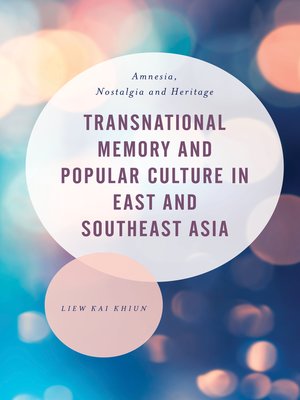Transnational Memory and Popular Culture in East and Southeast Asia
ebook ∣ Amnesia, Nostalgia and Heritage · Asian Cultural Studies: Transnational and Dialogic Approaches
By Liew Kai Khiun

Sign up to save your library
With an OverDrive account, you can save your favorite libraries for at-a-glance information about availability. Find out more about OverDrive accounts.
Find this title in Libby, the library reading app by OverDrive.



Search for a digital library with this title
Title found at these libraries:
| Library Name | Distance |
|---|---|
| Loading... |
Transnational Memory and Popular Culture in East and Southeast Asia explores the significance of transnational popular culture in the formation and mediation of collective memories across the region. It looks at case studies including: the politics of cinematic remembering of Hong Kong films on Southeast Asia, the digital and holographic enshrinement of departed celebrities like Wong Kar Kui, Bruce Lee and Teresa Teng and the dredging of personal memories of the encounters with the Korean Wave in Singapore. In addition, it explores how cultural memories are used as focal points of staging cultural revival and movements in Singapore and Taiwan.
Contrary to the assumptions of the importance of newness in modern popular culture productions, the continued relevance of this otherwise dated material reflects the significance of these texts in the development and strengthening of collective cultural memories. The discussion of such issues has often been grounded geo-spatially on the "national" and contemporary contexts, this volume will develop a more temporalized and transnational perspective in the shaping of otherwise local cultural identifications.
Contrary to the assumptions of the importance of newness in modern popular culture productions, the continued relevance of this otherwise dated material reflects the significance of these texts in the development and strengthening of collective cultural memories. The discussion of such issues has often been grounded geo-spatially on the "national" and contemporary contexts, this volume will develop a more temporalized and transnational perspective in the shaping of otherwise local cultural identifications.







